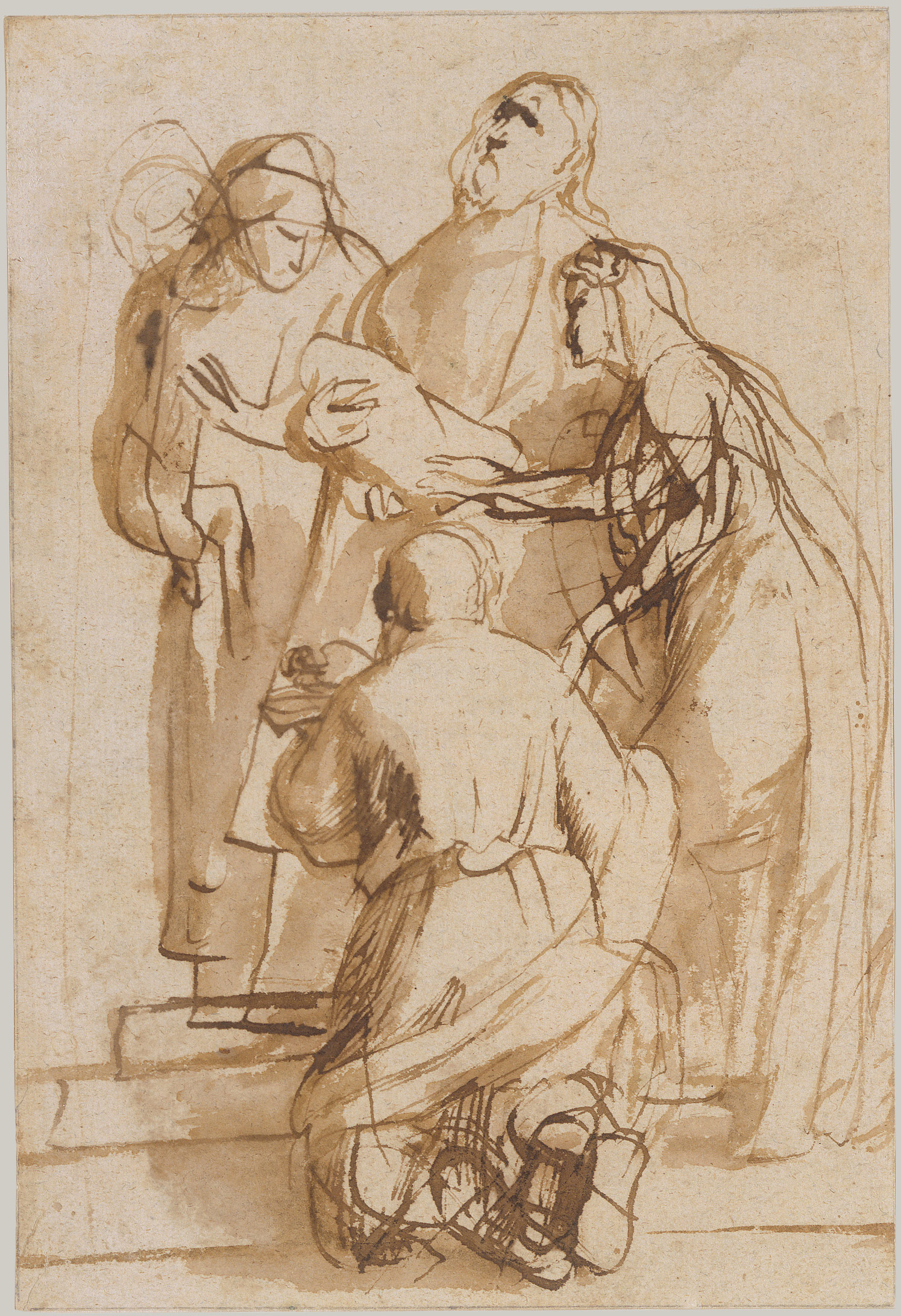I was thinking, as I am apt to do, of a cool metaphorical meaning one might get from these fantastic mysteries of the Rosary. They could be easily seen as a solid 5-part lesson on life in the Holy Spirit.
 1. The Annunciation. Our Lord asks Mary to bear His Son, and Mary says yes, saving us all. There’s enough meditation on this incredible moment in human history – the deus ex machina – to fill a few books, and a few hearts besides, but we can also take it as our own appropriate response to the Holy Spirit. Whether it be in the Eucharist, Confirmation, personal revelation, private consolation, or just plain, old-fashioned, religious feel-good experience, the proper answer is always yes. The proper answer is “I am not worthy, but bring it on, God.”
1. The Annunciation. Our Lord asks Mary to bear His Son, and Mary says yes, saving us all. There’s enough meditation on this incredible moment in human history – the deus ex machina – to fill a few books, and a few hearts besides, but we can also take it as our own appropriate response to the Holy Spirit. Whether it be in the Eucharist, Confirmation, personal revelation, private consolation, or just plain, old-fashioned, religious feel-good experience, the proper answer is always yes. The proper answer is “I am not worthy, but bring it on, God.”
2. The Visitation. Having thus received the Holy Spirit – as Mary received Jesus Christ – the proper response is not to go make some coffee and think about it. The proper response is to invite people over for some coffee and talk about it. It’s to yell about it, it’s to go and testify to the fact that you have been visited by God. Paul makes it very clear that the consolations we are given, the gifts and experiences we receive are not for mere enjoyment, but for building up the Church. Thus, as Mary’s first response was to go out, to visit her cousin, to proclaim the greatness of the Lord, so ours should be to allow God to contact others through his contact with us. As they say in the hood, go tell it on the mountain.
3. The Nativity. The word is born. The idea of salvation, the concept, the massive, over-arching and mind-blowing Plan is now available to the world. Made flesh. So too, when we receive God, in whatever way He meets us, we must make Him flesh. If “faith without works is dead” then spiritual experience without physical results is the same. When we receive God we must make that word into a work, some good thing, some tangible virtue; we must flesh it into some physical manifestation of His love. It really can be summed up in the fact that the result of prayer should be action.
 4. The Presentation in the Temple. This one gave me some pause. After all, circumcision, for all it’s relative benefits, isn’t exactly the first impulse of an inspired Christian (praise God). But think about what Mary and Joseph did; they honored the law, they honored authority. They just given birth to a savior who would fulfill the law and create a new covenant based on the circumcision of the heart, not the flesh, and yet He was submitted to authority. So too, we must submit to the authority of the Church. No matter how riveting our personal revelation is, no matter how sure we are of it’s origin, it should always be taken to a priest. Especially if it’s something like “begin liturgical dancing in your parish.” And in terms of those just-wonderful religious experiences, the should always be taken in the light of faith, in the light of what the Church teaches.
4. The Presentation in the Temple. This one gave me some pause. After all, circumcision, for all it’s relative benefits, isn’t exactly the first impulse of an inspired Christian (praise God). But think about what Mary and Joseph did; they honored the law, they honored authority. They just given birth to a savior who would fulfill the law and create a new covenant based on the circumcision of the heart, not the flesh, and yet He was submitted to authority. So too, we must submit to the authority of the Church. No matter how riveting our personal revelation is, no matter how sure we are of it’s origin, it should always be taken to a priest. Especially if it’s something like “begin liturgical dancing in your parish.” And in terms of those just-wonderful religious experiences, the should always be taken in the light of faith, in the light of what the Church teaches.
5. The Finding In the Temple. I’ve talked about this one before. When you lose your experience, when you lose your God; go back to Church. He’ll be there.













